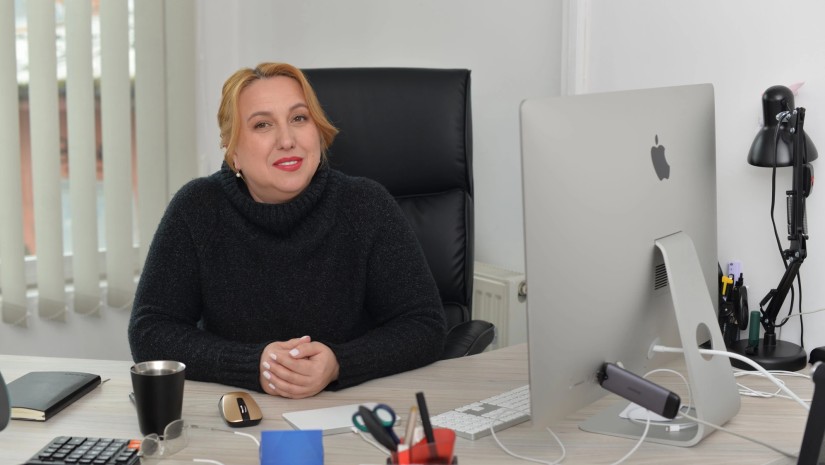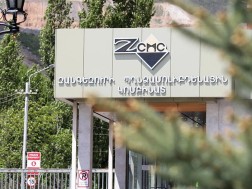Revenue in the global gaming industry is expected to reach $455.30 billion in 2024, with the number of users projected to hit 3 billion by 2029, according to Statista. In this highly competitive environment, the success of local indie companies that quickly secure international recognition is even more remarkable.
By early 2022, the Russian-originated company Ravenage Games had successfully launched, started operating on the international market, and had already introduced its first games to users. The management had planned to eventually open another office in Europe, but under new circumstances, the decision was made swiftly and executed with astonishing efficiency. In just two weeks, the company relocated to Georgia—where it soon earned its first million dollars. A year later, it was awarded the title of Georgia's Company from the Swiss rating award, Gamedev HR Awards 2023. Today, Ravenage Games boasts 15 games available on all key platforms across continents in the most popular languages.
This unprecedented success in such challenging conditions is primarily the result of the CEO and founder of the company, Elena Morina, who was recognized as Leader of the Year in Georgia also by Gamedev HR Awards 2023. Her impressive skills and innovative, effective solutions have consistently accompanied her career and quickly brought her recognition in the gaming technology market.
What sets her apart are two rare features: First, she entered the industry quite late, after 30 years of age. Second, she not only succeeded in the traditionally male-dominated field but also quickly rose to leadership positions. Her previous entrepreneurial experience couldn't help her much, so she had to learn everything from scratch in a highly competitive environment on extremely short notice.
"I entered a completely new field for myself. I had never worked in games before and didn't even think that such a career was possible," recalls Elena. "It felt like being a nobody and suddenly being invited to Hollywood. I came in as nobody, and within three months, I was leading a project."
In 15 years, Morina has gone from being a volunteer in online games to founding her own company as CEO. At every stage, she acquired and honed new skills, offering something unique that others later adopted.
Elena has proven her key talent several times: she builds teams from scratch, launches processes, organizes work in the shortest possible time, and quickly reaches expert-level proficiency.
In every Russian company she worked for, Morina introduced yet another innovation. For example, she developed all the internal documentation, reporting systems, and monitoring and control processes.
"I take documents and access very seriously, but it was always important to me that they be both simple and practical," Elena explains. Typically, game publishing contracts could consist of 50 or even 80 pages because it's believed that every possible detail needs to be covered. But in reality, contracts come into play when things go wrong between parties, and the longer they are, the longer the legal ping-pong. When everything is going well, it's enough to just fix the main points. A contract shouldn't be legal gibberish designed to confuse the parties, but rather a clear reflection of the agreements made. Later, to create a better contract than anything I'd seen before, two law firms helped me, and I read through and removed unnecessary parts until I got it down to 7-8 pages."
Similarly, she made her own little revolution in internal management. She introduced a convenient way for all parties to collaborate: a shared Google document with developers that consolidates all aspects—statistics, costs and revenues, access to social accounts, marketing plans, contractor contacts, schedules, and planning. Thanks to this tool, all work is conducted in real time.
"Of course, these things can't stay within the company, and from time to time, I see the management tools I've developed being used in the broader market. But I don't mind—after all, there's nothing super-secret here. It's just my compressed experience that makes life easier. Colleagues understood how effectively everything was connected and structured: a handy expense table for the company, calculations for all projects at once, various accounts, all platforms, 16 stores where our games are sold—in short, a huge amount of information that needs to be tracked in one place. Everyone said, 'We want that too!' Another important belief of mine is that the more educated and enlightened everyone in the industry is, the more the whole industry will benefit. "
Another small but notable revolution initiated by Elena was the principle of transparency in all processes. She was one of the first to showcase internal analytics systems, share insights at conferences and professional podcasts, and conduct publishing webinars for students.
"Previously, the typical situation was that a developer would hand over a game to a publisher and then live in the dark for a year, not knowing what was happening with it, how sales were going, or how much and why the publisher was spending. We are completely transparent - we inform the developer about every step and stage, down to how much we plan to spend, say, on creatives, and even agree on costs with them. We work with their game as producers and marketers and also educate them in the process, giving them the opportunity to go through the entire cycle of working with a publisher. I believe that if a developer understands not only game development but also publishing, it will help them keep their focus on what is necessary for a successful game release. This will save a lot of time in the future."
Elena applied this same approach at every level, such as when introducing new marketing solutions. While at Destiny.Games, Morina was the first to start a professional blog on Facebook, sharing insights about how work was organized and revealing behind-the-scenes details. Before that, professionals in mobile games tended to discuss such things, but it wasn't common in the PC and console segments.
At Destiny.Games, Elena also achieved impressive results: The Russian launch of the legendary game TERA Online, in which she was deeply involved in the marketing efforts, was recognized as one of the best and largest global franchises. This high-profile project became a significant challenge, enabling her to step into the top league of publishing. "I worked on this for a long time, coming up with interesting marketing and PR moves, like hybrid offers, constantly stimulating users and motivating those driving traffic to us to use all available resources." Her creative ideas and the concept of referral motivation of users and developers formed the basis of an innovative project for the gaming industry, the company launched another innovation—a gaming platform on cryptocurrency: in a short period, Elena fully developed the concept, assembled a team, and attracted contractors.
Among her personal innovations was also a method for evaluating and counting PR activities. Morina suggested using return metrics as a criterion: "Typically, one player will play several times before getting bored. But when an update, article, or video is released, they remember the game and come back. These spikes are what we measured."
Upon joining Super.com (supergg.com), for her first trip to an event, she and her marketing team suggested interesting branded clothing - hoodies with reflective "pitch me your game" text, which immediately caught attention. Later, she used this same strategy to promote her own company, Ravenage Games, branding the next conference with reflective merchandise from bags to T-shirts (conference participants later humorously recounted how everything "glowed in the dark" when they woke up in their hotel rooms).
After analyzing attended conferences and exhibitions, Elena proposed a new useful format - the Games Garage event, a marathon of expert consultations: "I gathered about 20 experts, not for lecturing but for actual collaboration with participants. They were seated at tables and scheduled for half-hour slots. Anyone could sign up, ask questions, and get advice. At that first event, there were over 200 people. Naturally, the format caught on, and now many are trying to replicate it, and not just in the gaming industry. It's a kind of speed dating - but not for dating or selling a project or yourself. It's for sharing expertise."
Morina's team didn't invent the format of Steam fests, but they brought many new elements to it, demonstrating an impressive lack of competitive jealousy. Companies rarely organize their own festivals without heavily featuring their games, but Elena was content with just one game participating because her priority was networking with colleagues, developers, and journalists, exchanging ideas, and shaping trends together.
"Industry colleagues always help," she says. "I don't know of another industry as mutually supportive as gaming. But it's also equally ruthless - any success you have will be supported, but any mistake will be immediately visible."
Of course, moving forward and upward required personal challenges from Elena as well. For instance, she had to learn English from scratch to a conversational level within six months, enabling her to work effectively at the international level. She studied the nuances of the stationary and mobile gaming markets with all their many fundamental differences, planned budgets, prepared releases, delved into the intricacies of traffic, operational and social systems, tax funds, international marketing, and project signing.
"There was no one to consult when I entered the industry; it wasn't customary. Everyone feared being judged for not knowing something. As a result, everyone was inventing things on their own, and sometimes it turned out that we all came up with the same thing simultaneously. In the absence of competent people, you constantly have to seek expertise, buy consultations, discuss the structure and details of the work, and keep experimenting. I realized that it's better to conduct 20 experiments than to wait a year for the implementation of one chosen strategy. My approach is to quickly and cheaply test hypotheses, approve the successful ones, launch them, and move on," concludes Elena.
The result of this years-long marathon was the creation of her own company, Ravenage Games, an indie project publisher - games that are too small for large corporations and too big for private investors. The company works for PC and consoles in the premium segment. "Publishers fall into several categories. The most common operates on the principle of 'gave a lot of money - earned a lot of money,' while many others follow the 'gave a little money, realized it wasn't working, and abandoned it' model. We've been working in a unique niche for indie project publishing for three years now, which requires a lot of manual work and close interaction with the developer. It can vary in cost and doesn't allow for precise forecasting. I review more than 2000 projects and I play 50 to 100 games every month to find one per quarter. I build relationships with developers who've never dealt with a publisher before, immerse them in this world, explain everything, and literally guide them by the hand. We're a kind of boutique in publishing, which allows us to work only with games that truly inspire us."
However, the most challenging test of her leadership and professional qualities came when Elena had to relocate the business to Georgia on short notice.
The relocation package had to be assembled under force majeure conditions, without preparation, and unexpectedly. During the first wave of relocation in March 2022, the company covered airfare for all employees who wished to relocate (which accounted for 90 percent), along with two weeks of accommodation and two months of rent. In the second wave, ground transportation costs for moving personal belongings were added.
It soon became apparent that Batumi lacked any traditional business centers at the time. The company needed an office space of approximately 1,000 square meters. Elena found a practically dilapidated former school building, with only the walls remaining. Within a month and a half, she renovated the space, and within another two weeks, she fully furnished it with equipment and furniture, which was not easy to find in such large quantities in the area. During this preparation, employees were given a one-week relocation break, after which work continued remotely - from homes, cafés, and even cars. As a result, Ravenage Games' office gained a reputation in Batumi as the first of such grand scale. The company also actively integrated into the country’s life on all levels, including charitable efforts - such as donating furniture for a computer classroom in a local school.
The relocation highlighted another area of Elena’s work - building and supporting a professional commonwealth. For ten years, she has been leading an HR community in the gaming industry, which consolidates nearly 100 heads of gaming companies. In 2022, she also created a network of relocation chats for the gaming industry to assist companies facing a lack of information, force majeure events, and tight deadlines. This work has resulted in not only professional but also effective personal, human connections. Elena is frequently invited to serve on the juries of various events, to evaluate gaming projects, and to speak at conferences. She strives to share her expertise through webinars, reinforcing her status and reputation. Today, her name is widely known in the gaming technology sector, and for many, she has become a role model.
"I very quickly become a jack-of-all-trades. So, for the last 15 years, I’ve been at C-level positions and above," says Elena. "And now my company is me—from buying office furniture to selecting marketing strategies. I am my company. And I believe the next 15 years will give me even more сhallenges that I'm ready to face."
















